第51章 NO STORY(4)
"Oh, Hi's all right," answered Miss Lowery. "Yes, I could get along with him fine. He's promised me an automobile and a motor-boat. But somehow, when it got so close to the time I was to marry him, I couldn't help wishing--well, just thinking about George. Something must have happened to him or he'd have written. On the day he left, he and me got a hammer and a chisel and cut a dime into two pieces. I took one piece and he took the other, and we promised to be true to each other and always keep the pieces till we saw each other again.
I've got mine at home now in a ring-box in the top drawer of my dresser. I guess I was silly to come up here looking for him. I never realized what a big place it is."
And then Tripp joined in with a little grating laugh that he had, still trying to drag in a little story or drama to earn the miserable dollar that he craved.
"Oh, the boys from the country forget a lot when they come to the city and learn something. I guess George, maybe, is on the bum, or got roped in by some other girl, or maybe gone to the dogs on account of whiskey or the races. You listen to Mr. Chalmers and go back home, and you'll be all right."
But now the time was come for action, for the hands of the clock were moving close to noon. Frowning upon Tripp, I argued gently and philosophically with Miss Lowery, delicately convincing her of the importance of returning home at once. And I impressed upon her the truth that it would not be absolutely necessary to her future happiness that she mention to Hi the wonders or the fact of her visit to the city that had swallowed up the unlucky George.
She said she had left her horse (unfortunate Rosinante) tied to a tree near the railroad station. Tripp and I gave her instructions to mount the patient steed as soon as she arrived and ride home as fast as possible. There she was to recount the exciting adventure of a day spent with Susie Adams. She could "fix" Susie--I was sure of that--and all would be well.
And then, being susceptible to the barbed arrows of beauty, I warmed to the adventure. The three of us hurried to the ferry, and there I found the price of a ticket to Greenburg to be but a dollar and eighty cents. I bought one, and a red, red rose with the twenty cents for Miss Lowery. We saw her aboard her ferryboat, and stood watching her wave her handkerchief at us until it was the tiniest white patch imaginable. And then Tripp and I faced each other, brought back to earth, left dry and desolate in the shade of the sombre verities of life.
The spell wrought by beauty and romance was dwindling. I looked at Tripp and almost sneered. He looked more careworn, contemptible, and disreputable than ever. I fingered the two silver dollars remaining in my pocket and looked at him with the half-closed eyelids of contempt. He mustered up an imitation of resistance.
"Can't you get a story out of it?" he asked, huskily. "Some sort of a story, even if you have to fake part of it?"
"Not a line," said I. "I can fancy the look on Grimes' face if I should try to put over any slush like this. But we've helped the little lady out, and that'll have to be our only reward."
"I'm sorry," said Tripp, almost inaudibly. "I'm sorry you're out your money. Now, it seemed to me like a find of a big story, you know--that is, a sort of thing that would write up pretty well."
"Let's try to forget it," said I, with a praiseworthy attempt at gayety, "and take the next car 'cross town."
I steeled myself against his unexpressed but palpable desire. He should not coax, cajole, or wring from me the dollar he craved. I had had enough of that wild-goose chase.
Tripp feebly unbuttoned his coat of the faded pattern and glossy seams to reach for something that had once been a handkerchief deep down in some obscure and cavernous pocket. As he did so I caught the shine of a cheap silver-plated watch-chain across his vest, and something dangling from it caused me to stretch forth my hand and seize it curiously. It was the half of a silver dime that had been cut in halves with a chisel.
"What!" I said, looking at him keenly.
"Oh yes," he responded, dully. "George Brown, alias Tripp. what's the use?"
Barring the W. C. T. U., I'd like to know if anybody disapproves of my having produced promptly from my pocket Tripp's whiskey dollar and unhesitatingly laying it in his hand.